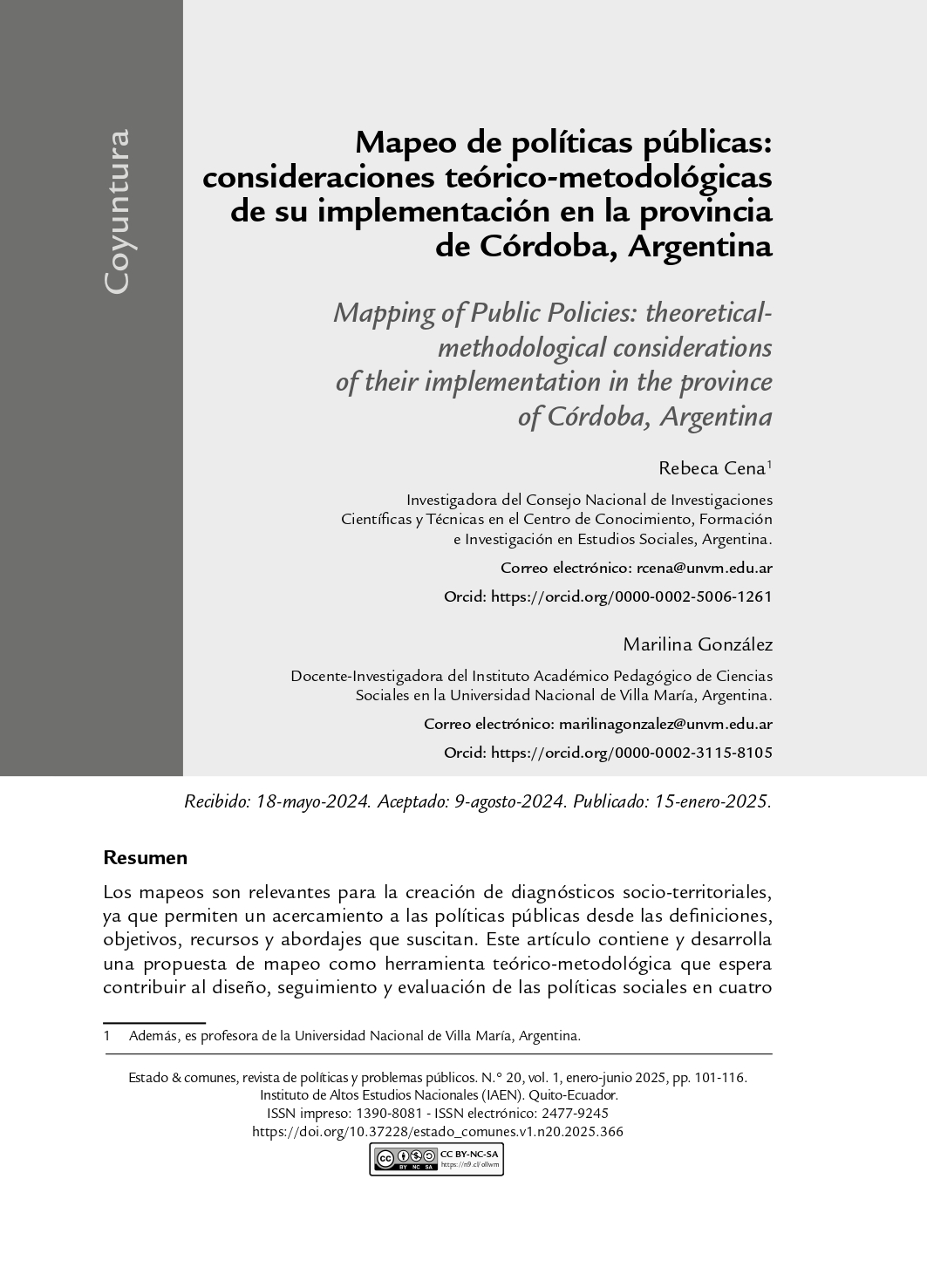Mapping of Public Policies: theoretical-methodological considerations of their implementation in the province of Córdoba, Argentina
Main Article Content
Abstract
Mapping is relevant for creating socio-territorial diagnostics as it allows an approach to public policies from the definitions, objectives, resources, and approaches they entail. This article contains and develops a mapping proposal as a theoretical-methodological tool that aims to contribute to the design, monitoring, and evaluation of social policies in four intermediate cities in the province of Córdoba, Argentina. The proposal is structured into five components: 1) policy selection; 2) description of dimensions; 3) data analysis; 4) systematization; and 5) scheme development. The authors consider mapping a strategy that can be included in instances of dialogue and negotiation and offer a dynamic image of state interventions regarding decision-making in the cities of Villa María, Villa Nueva, San Francisco, and Bell Ville in the province of Córdoba.
Downloads
Article Details
How to Cite
Issue
License
Copyright (c) 2025 Rebeca Cena, Marilina González
CC BY-NC-SA. This license allows sharing, copying, distributing, performing, and publicly communicating the work, as well as creating derivative works.
Author Biographies
Rebeca Cena (Consejo Nacional de Investigaciones Científicas y Técnicas)
Investigadora en el Centro de Conocimiento, Formación e Investigación en Estudios Sociales
Marilina González (Universidad Nacional de Villa María)
Docente-Investigadora del Instituto Académico Pedagógico de Ciencias Sociales
Funding data
-
Universidad Nacional de Villa María
Grant numbers Resolución Rectoral N.° 724











